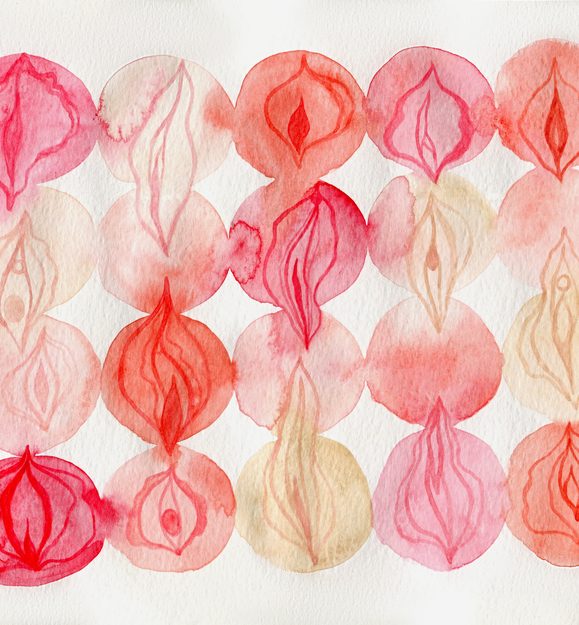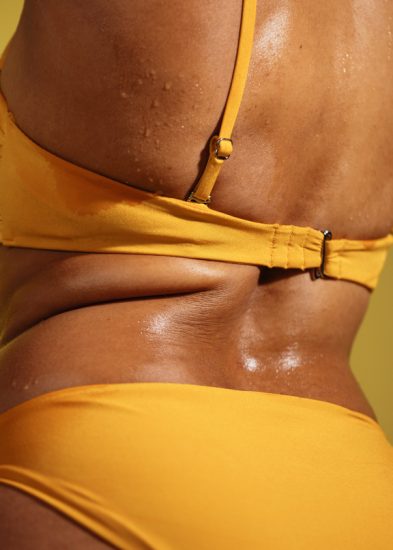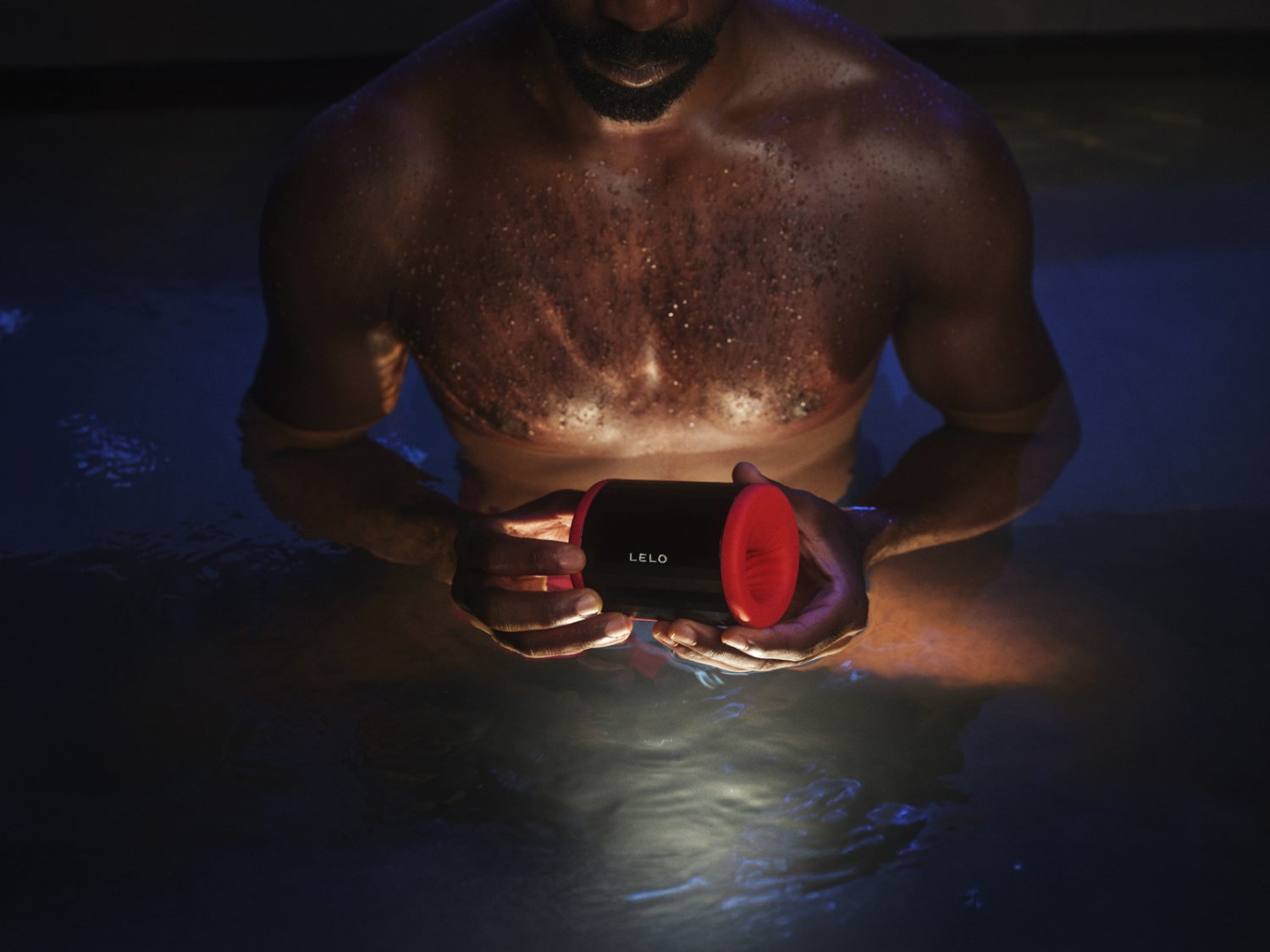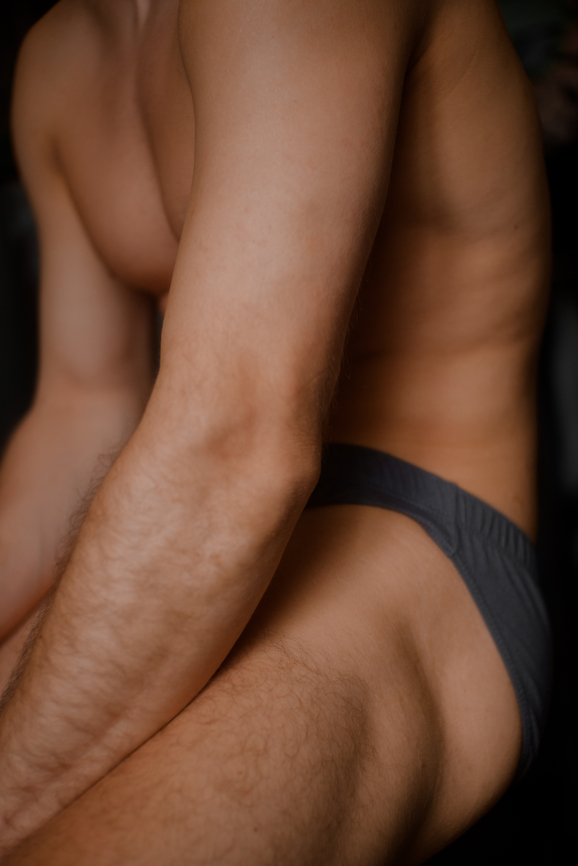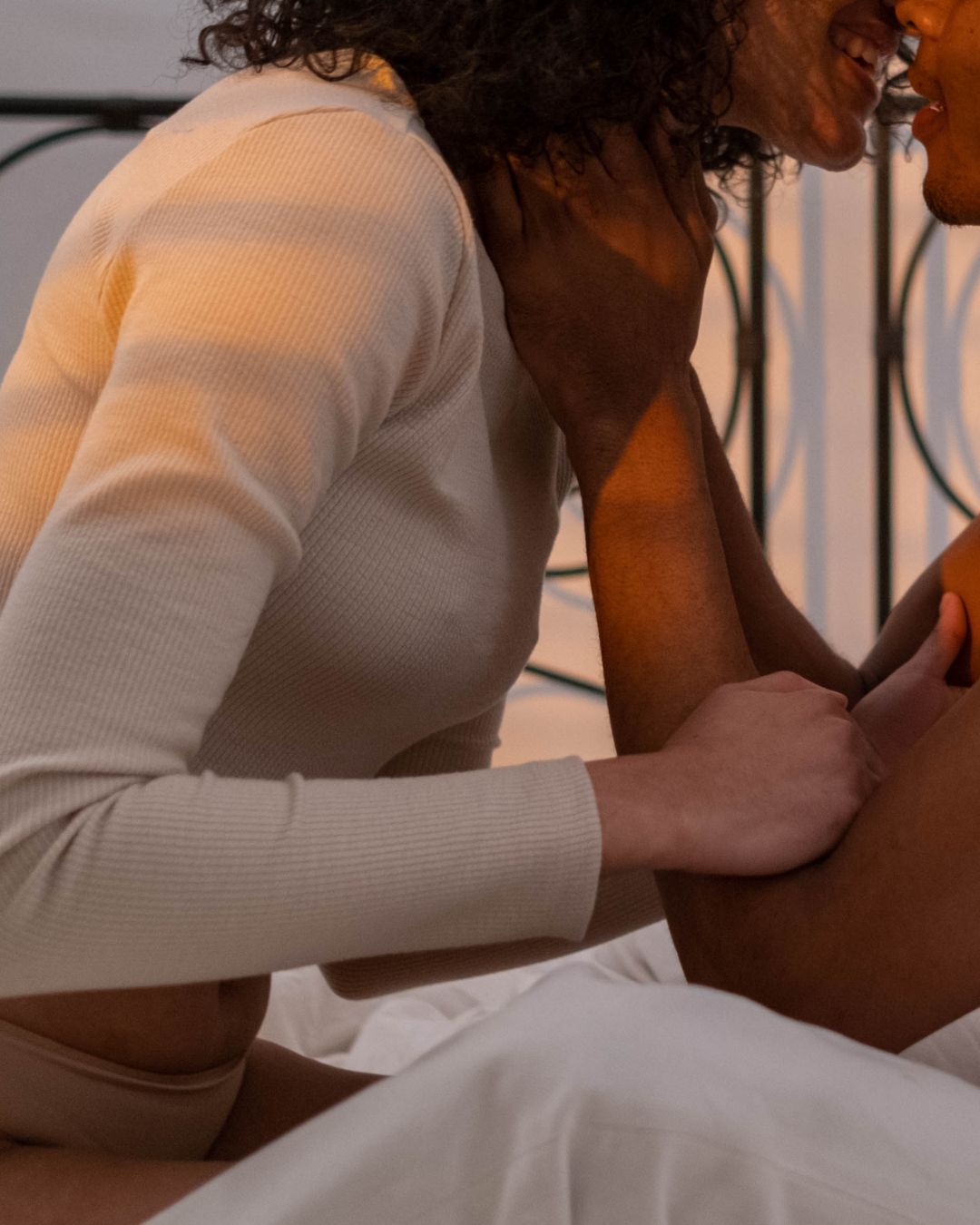Well…is it?
First: the difference between a vulva and a vagina. The vulva is the external female genital organs, while the vagina is the internal muscular tube. Chances are, both of yours are totally normal. But you might be wondering how your parts function / look / feel compared to others. On top of that, the messaging around both are confusing, so let’s get some solid intel.
Below, I’ve broken down the most common questions I get from people with vulvas and vaginas, along with answers. Grab your lube and let’s get into it.
Are my labia lips too long? Is my clitoris too big?
I’ll give you some average measurements, but first – please check out The Vulva Gallery if you haven’t already! There’s a huge variety in vulvas, all beautiful, all unique. It’s very normal to have a distinctive vulva.
Here are some average measurements, so you can get an idea of just how diverse vulvas and vaginas really are:
- The average labia majora, aka the external “lips,” can vary from around 1.6–4.5 inches.
- The average clitoral glans is between 3 and 8 mm (.1 to .3 inch) in diameter. It also swells during arousal.
- The average vaginal depth is about 3.6 inches, but can range from 2-5 inches.
There’s also a ton of variety in vulva skin, and healthy labia can vary in shades from pink to brown, purple to black.
Why is my vulva itchy?
An itchy, irritated vulva is also “normal” – as in, common. But as far as underlying causes, there are many:
- Friction from sex
- Friction from tight clothing/working out
- Yeast infection
- Bacterial vaginosis
- Various STI’s
- Menopause
While there are definitely times you should visit your healthcare provider (if you suspect an STI, for example), there are also lots of OTC solutions to soothe an itchy vulva.
For immediate relief, I’m in love with the brand Momotaro, and their organic care line. Instead of harsh chemicals, they use ingredients like Goldenseal and Oregon Grape to restore the vulva’s moisture barrier and help balance pH. (The vagina is a little acidic and its pH can get thrown off by bacterial imbalances, including common infections.) Momotaro’s Salve feels soothing as soon as you put it on, and won’t disrupt your pH. Their Suppository is also a godsend – it treats common vaginal infections, and provides ongoing relief from the moment you put it in.
Why don’t I feel anything in my vulva, leading up to sex?
This is a question about arousal, and the answer is complex. But the issue is oh-so-normal – I hear this question almost every day.
Two common reasons you might feel “numb” down there in the build-up to sex include:
- You’re not turned on. You might be bored with the sex, which is completely valid. If that’s the case I recommend exploring some sexual novelty with your partner. Try filling out my Yes / No / Maybe List together, which could lead to some sexy discoveries.
- Your blood flow isn’t engorging your genitals. What makes your vulva pleasurably sensitive? Blood rushing to your genitals. But it’s very common to feel like sensation is lacking there – and what’s needed is a circulation boost. Two ideas: daily exercise to improve circulation overall, and a CBD-infused lube in the moment. CBD is a vasodilator, and improves blood flow where it’s applied.
Why does it hurt when I pee?
You might have a UTI (urinary tract infection)! Which is also very normal and common. Those with a vulva are 8x more likely to get them, than those with a penis. Frequent sex (yay) is a potential contributing factor to UTI’s (boo), especially if you don’t pee after sex.
E coli is the bacteria responsible for 90% of UT problems, so you need a product that targets it. I’m into the brand Just Thrive* because their supplement spores are more “alive” than anything else on the market, and their UT123 capsules fix UTI’s fast (24 hours fast). Made with full-spectrum cranberry, black cumin seed and hibiscus, it relieves the “peeing knives” feeling and clears up the bad bacteria.
*Get 20% off at Just Thrive with code “SEXWITHEMILY”
Why can’t I get wet?
There are MANY factors that affect vaginal lubrication. Stress levels, the time in your cycle, birth control and alcohol use (just to name a few) can all make it harder to get wet.
Additionally, menopause causes a drop in estrogen. This can lead to vaginal dryness, as vaginal tissues atrophy and become thinner.
No matter your age though, vaginal lubrication issues are normal. According to one study, 30% of women between the ages of 18 and 59 say they have trouble with vaginal lubrication during sex.
Solution? Lube. Even if you aren’t experiencing challenges with vaginal dryness, it just makes sex more fun. Consider this:
- Studies show that all lube types (water-based, silicone-based, etc.) are associated with significantly higher sexual pleasure among all genders.
- For those with a vulva, chances of orgasm are 50% higher when lube is present.
- Lube makes sex last longer, since everyone is more comfortable.
- Lube reduces friction, making condoms less likely to break and genital microtears less likely to occur.
You can peruse a variety of high-quality (and me-approved) lubes here.
Now that you’ve got a better idea of the norms, keep exploring how you can better pleasure yourself (or a partner!) through open communication and celebration of every body — yes, especially your own.
Want more? Sign up for my newsletter and get sex secrets on the regular.

